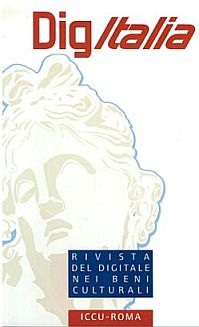La Biennale di Venezia verso un futuro in digitale
Abstract
L a Biennale di Venezia è da oltre un secolo una delle istituzioni culturali più prestigiose al mondo. Fin dalla sua origine (1895) è all’avanguardia nella promozione delle nuove tendenze artistiche, organizzando manifestazioni internazionalinelle arti contemporanee, secondo un modello pluridisciplinare che ne caratterizza l’unicità. Si colloca ai vertici mondiali sia per la Mostra internazionale d’arte cinematografica (63 edizioni), sia per l’Esposizione internazionalele d’arte (51 edizioni) e la Mostra internazionale di architettura (10 edizioni), e prosegue la grande tradizione dei Festival della musica (50 edizioni) e del teatro (38 edizioni), affiancati ora dal Festival della danza (4 edizioni). Per mezzo dell’Archivio Storico delle Arti Contemporanee (ASAC), la Biennale tutela, conserva e valorizza il suo patrimonio documentale raccolto dal 1895 a oggi.
Downloads
Download data is not yet available.
Downloads
Published
2006-04-05
How to Cite
Pasini, G. (2006). La Biennale di Venezia verso un futuro in digitale. DigItalia, 1(2), 163–169. Retrieved from https://digitalia.cultura.gov.it/article/view/305
Issue
Section
Projects
License
The Authors publishing their contributions on this journal agree to the following conditions:
- The Authors detain intellectual property rights of their work and transfer the right of first publication of the work to the journal, under the following Licence: Attribution-ShareAlike 3.0 Italy (CC BY-SA 3.0 IT). This Licence allows third parties to share the work by attributing it to the Authors and clarifying that the work has been first published on this journal.
- Authors can sign other, non-exclusive licence agreements for the dissemination of the published word (e.g. to deposit it in an institutional archive or publish it in a monography), provided that they state that the work has been first published on this journal.
- Authors can disseminate their work online (e.g. in institutional repositories or on their personal websites) after its publication, to potentially enhance knowledge sharing, foster productive intellectual exchange and increase citations (see The Effect of Open Access).






